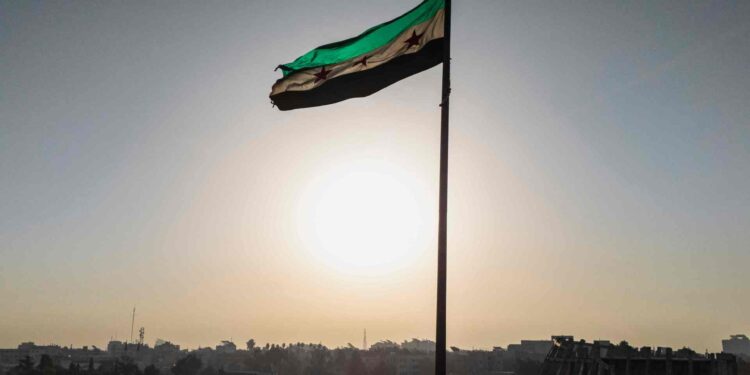After more than a decade of war that has devastated Syria economically, the new leadership is trying to rebuild the country amid challenges that include international sanctions, a lack of experience and a lack of control over oil resources, the Wall Street Journal said in a recent report.
According to the newspaper’s report, initial signs of recovery have begun to appear, but the road towards recovery is still long and complicated.
Major economic challenges
The newspaper notes that the war, which lasted for more than 10 years, left the Syrian economy in a state of collapse, as the country lost billions of dollars in oil revenues, which constituted approximately half of its annual export revenues, and amounted to $3 to $5 billion before the war.
As the value of the Syrian pound declined, the cost of basic goods rose, and citizens were forced to carry piles of cash to pay for daily needs.
Currently, the US dollar requires 13,000 Syrian pounds, compared to only 50 Syrian pounds before the war, which highlights the impact of massive inflation, according to the newspaper.
According to the World Bank, 75% of the population lives on less than $3.65 a day, while 33% live in extreme poverty on less than $2.15 a day.
This has led, according to the Wall Street Journal, to an increasing reliance on the black market to secure fuel and basic materials.
The oil sector and political challenges
According to the newspaper, Syria has lost control of most of its oil fields, which are now under the control of the Syrian Democratic Forces in the northeast.
Tariq Asfour, responsible for fuel management at the government company designated for fuel distribution, confirmed that regaining control of these fields is a top priority.
Asfour said in an interview with the newspaper: “If we regain control of the oil fields, we can achieve a degree of energy independence instead of almost completely relying on imports.”
The newspaper sees difficulty in Syria’s new path to lifting sanctions, with Hay’at Tahrir al-Sham still being classified as a terrorist organization by the United States, the European Union, and the United Nations, which complicates efforts to attract international investments.
Muhammad Hallaq, Vice President of the Damascus Chamber of Commerce, points out that lifting sanctions is necessary to restart the banking system and stimulate economic growth, saying: “We need technical expertise, technology, and most importantly, lifting sanctions so that we can move forward.”
Relative improvement in some sectors
Despite the challenges, the Wall Street Journal noted some signs of improvement in the Syrian economy. For example, the removal of fees and bribes imposed by the previous regime contributed to lower prices, and imported medicines became more available and less expensive.
“Customers are happy to get foreign medicines at reasonable prices now,” said Rima Sobeih, a pharmacist in Damascus. “Syrian medicines used to have a reputation for being less effective, but now we are able to provide better options.”
The report also notes that foreign products, which were previously smuggled and sold secretly, are now openly displayed in stores.
Saleh Mustafa, owner of a tobacco store in Damascus, said, “You can choose whatever you want, and there is no longer any fear of displaying foreign products.”
The future of the Syrian economy
The enormous economic and political challenges make reconstruction a complex process. It requires foreign currency reserves to stabilize the currency and fund government salaries, which the Central Bank of Syria currently lacks.
“Central bank reserves are very low, which hampers reconstruction efforts and currency support,” noted Randa Slim, a fellow at the Middle East Institute in Washington.
Despite this, there is cautious optimism about the future. The United States and the European Union are working to provide limited humanitarian aid without completely lifting sanctions, while Türkiye has shown great interest in participating in reconstruction projects to enhance its industries and geopolitical interests.
Omar Dahi, professor of economics at Hampshire College, noted that the current situation may lead to the emergence of “multiple public sectors” with the state funding large projects independently of the central government.
“Peace in Syria is very fragile, especially given the pressing economic needs,” Dahi added.
Despite relative optimism about some economic improvement, stabilizing Syria requires coordinated international efforts, easing sanctions, and enhancing transparency in resource management, according to the newspaper.



